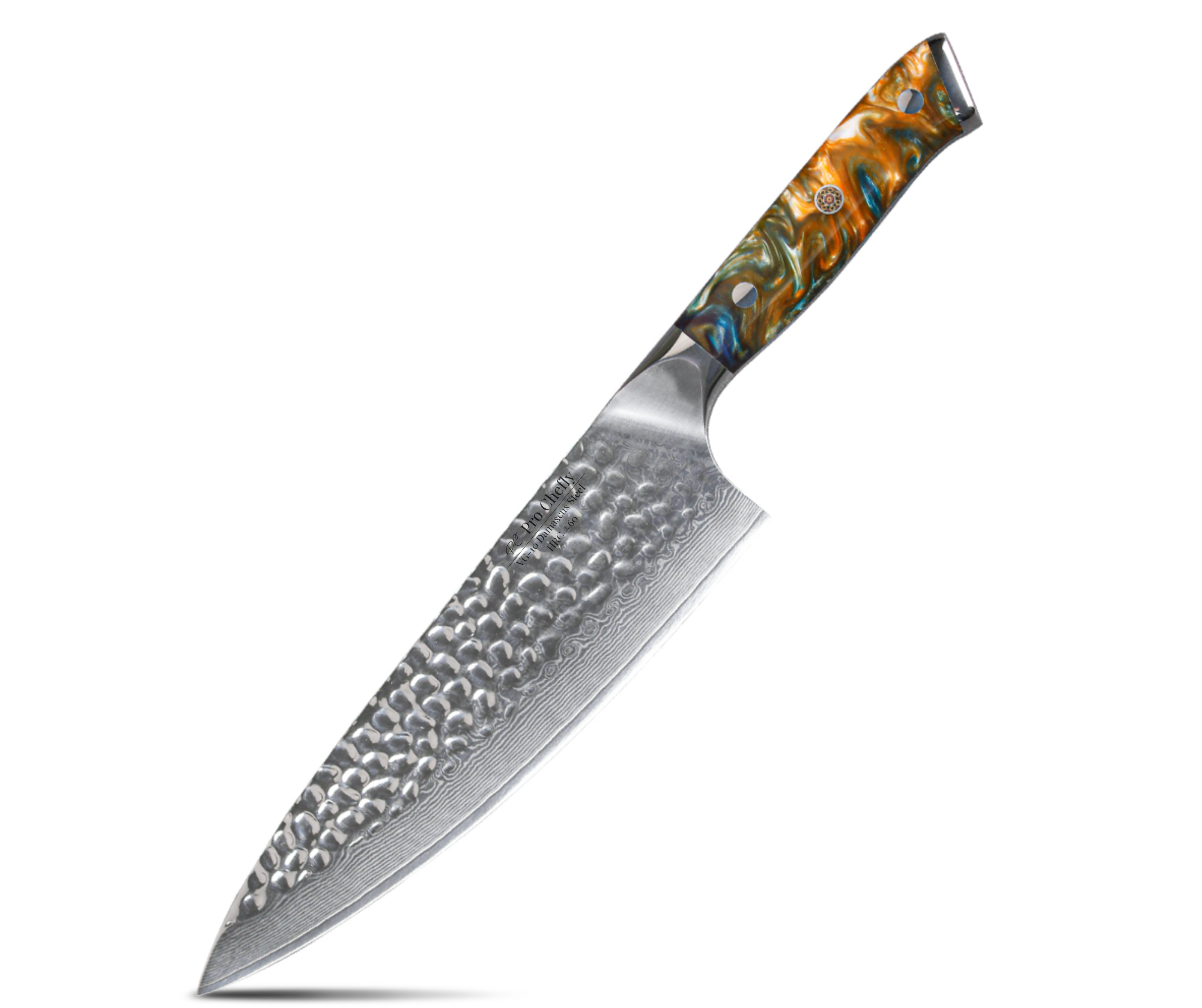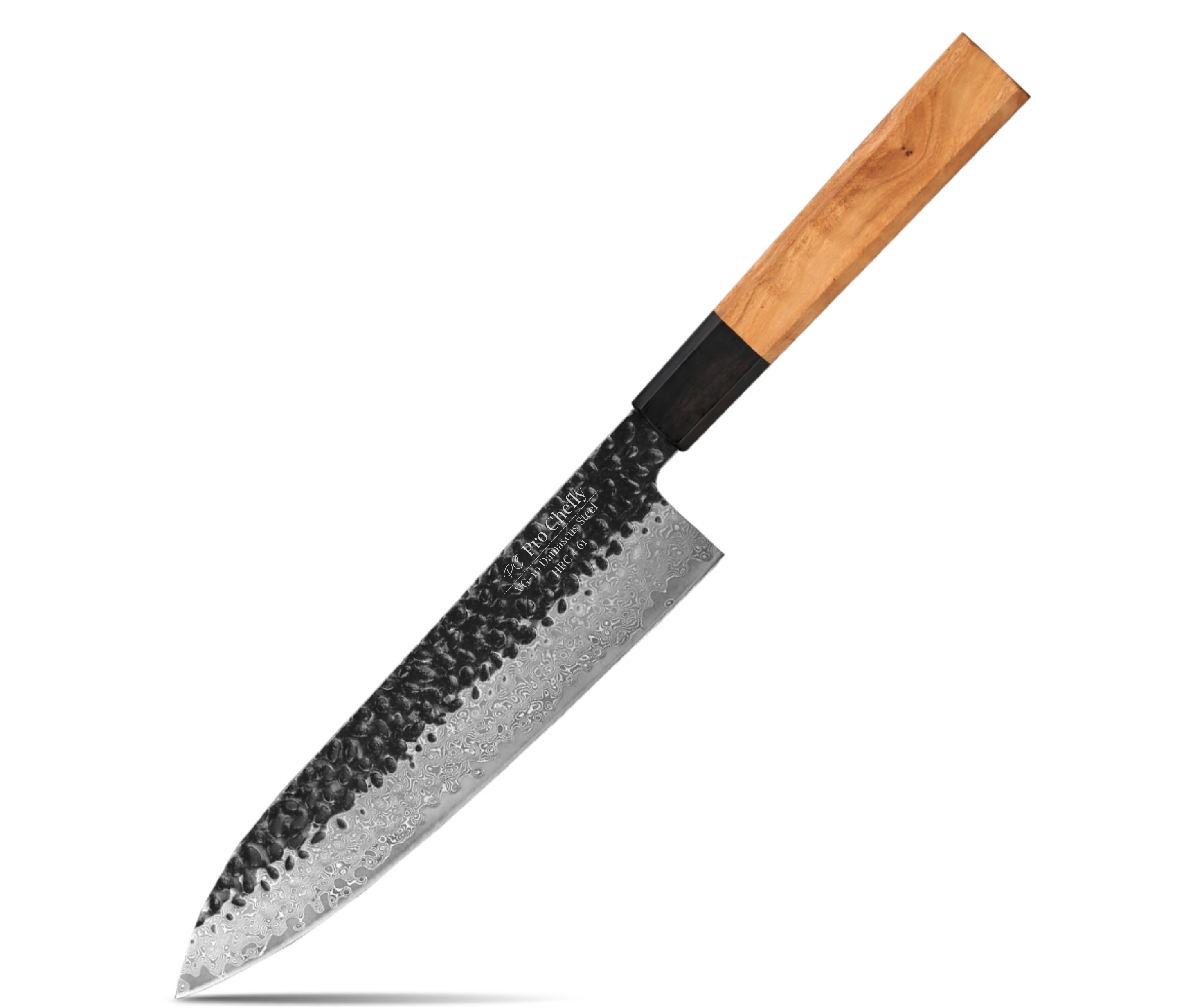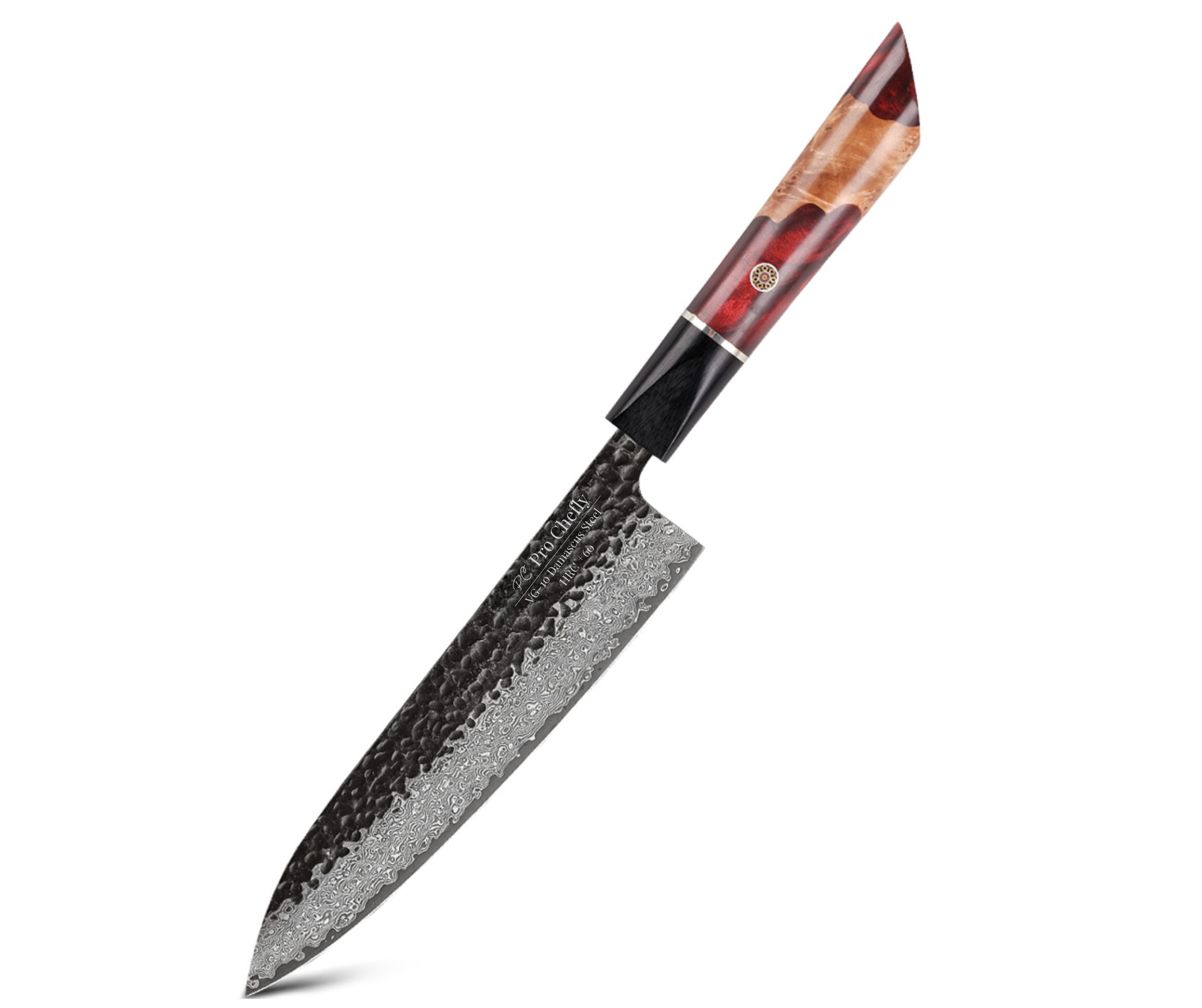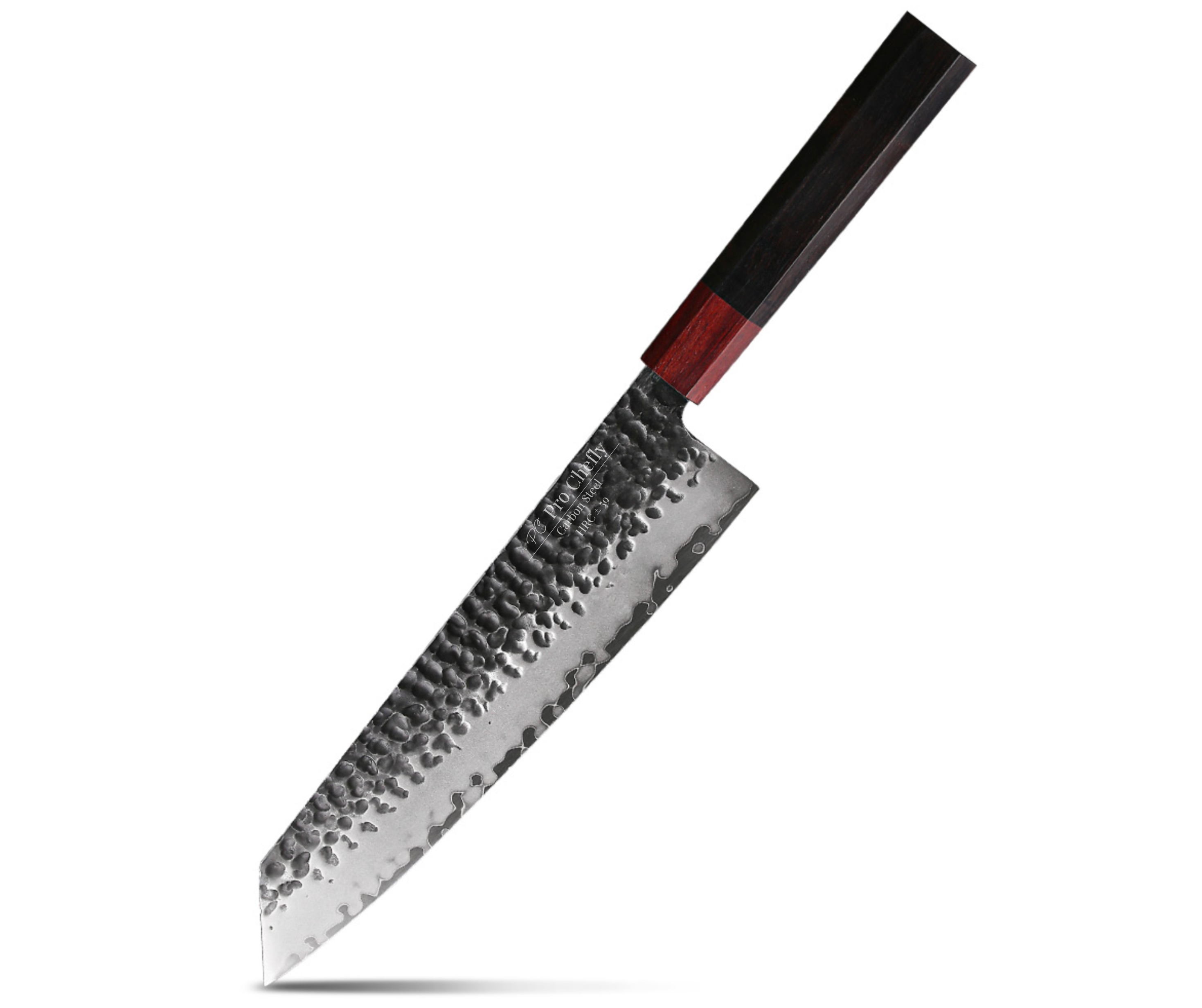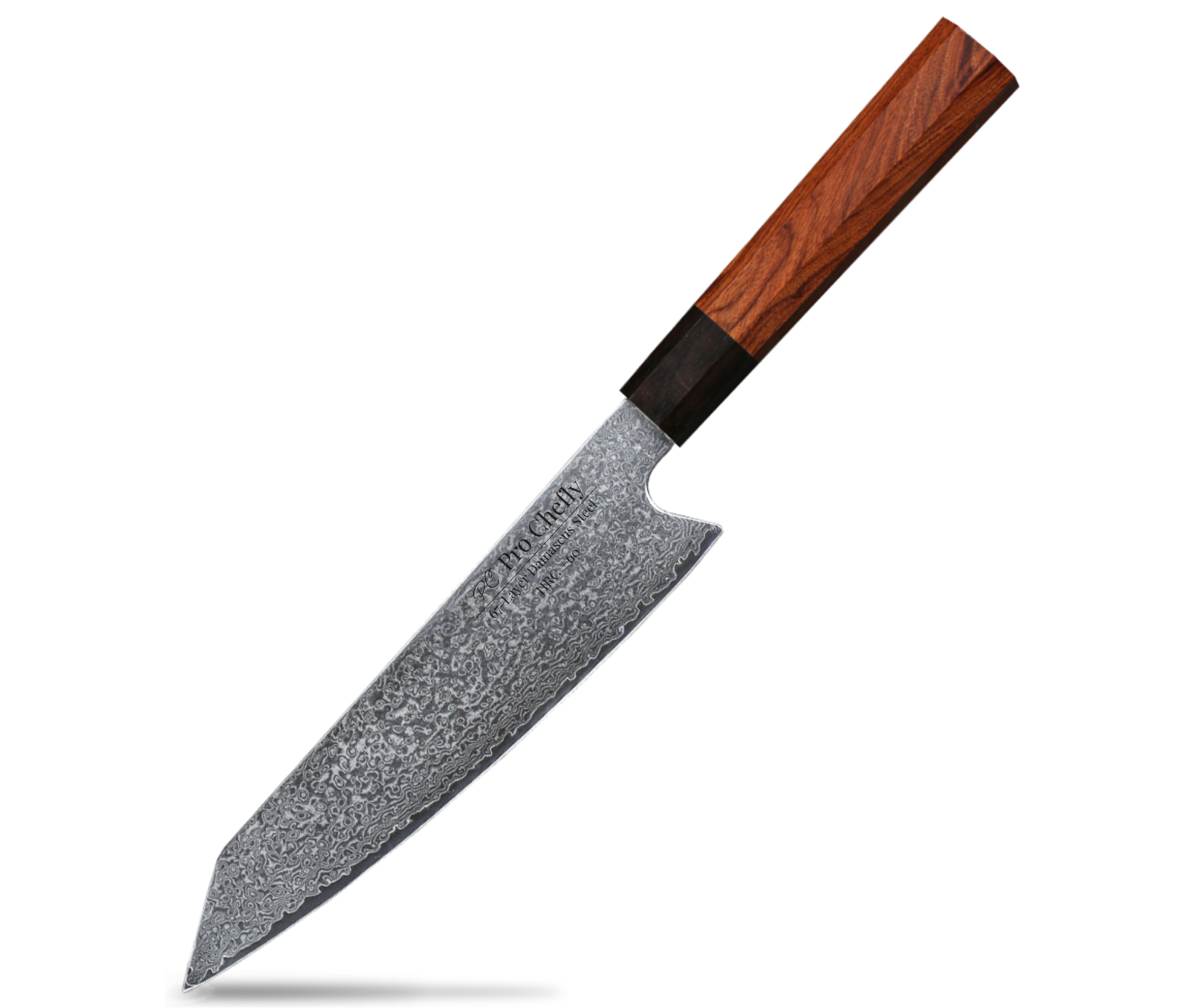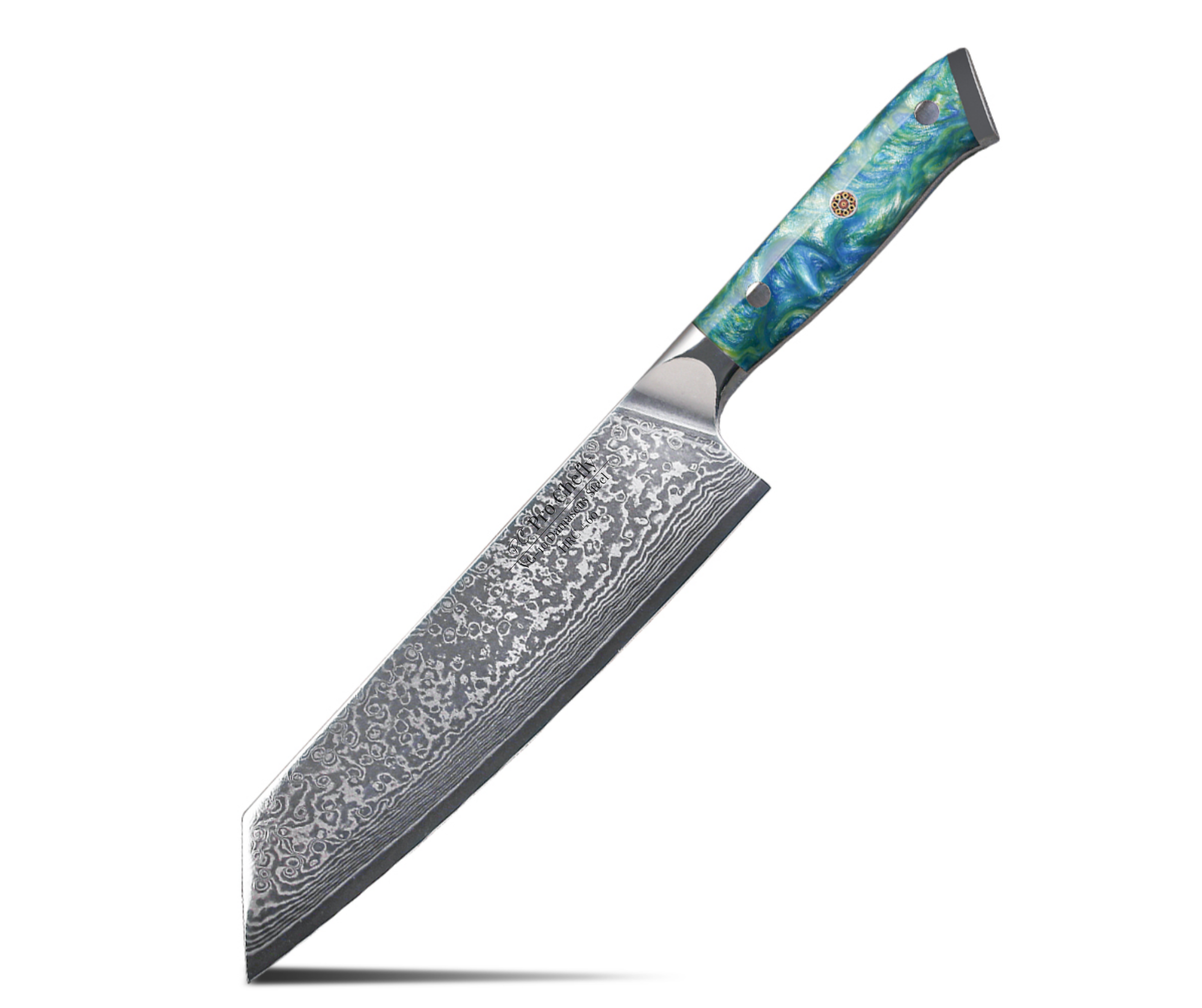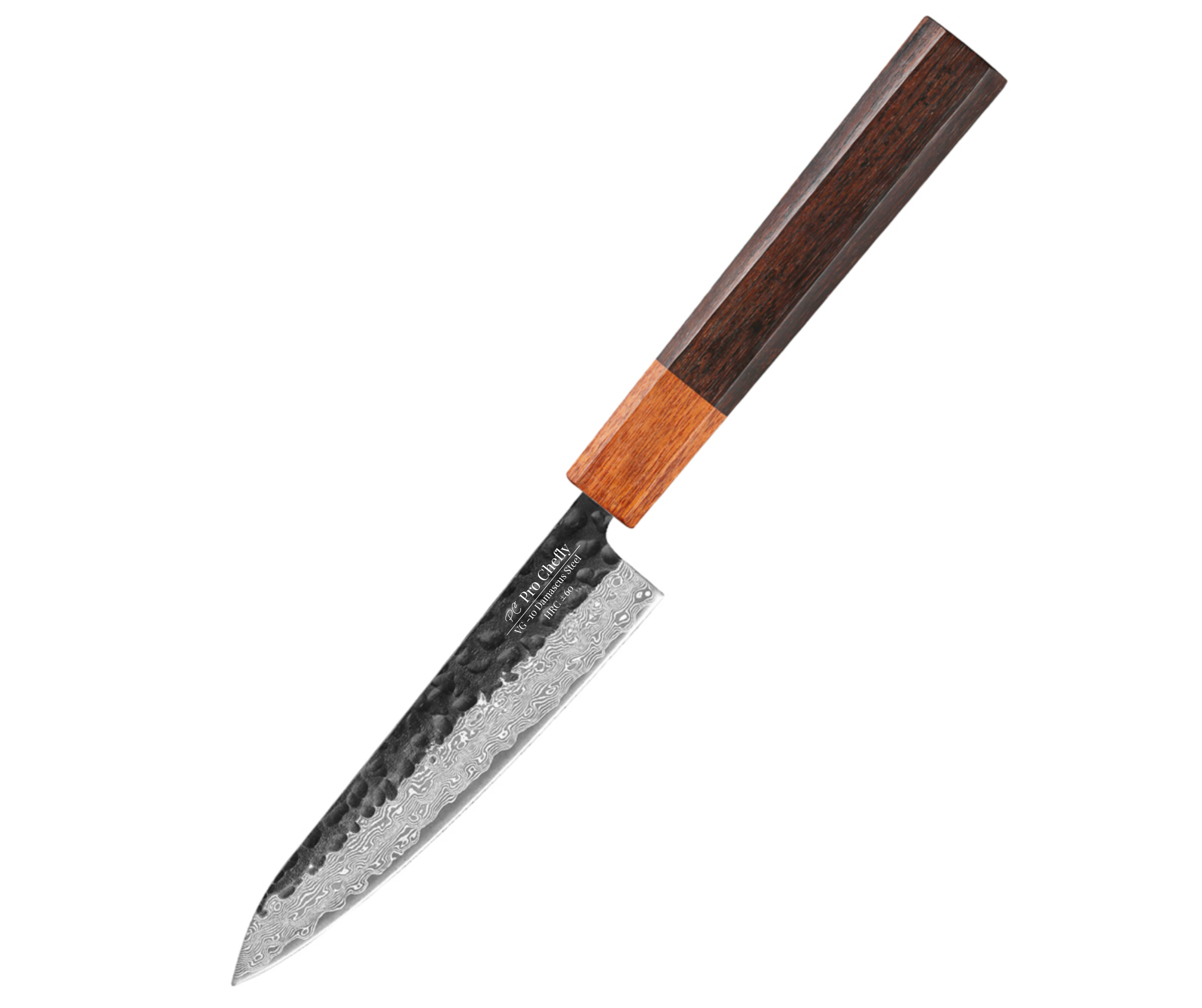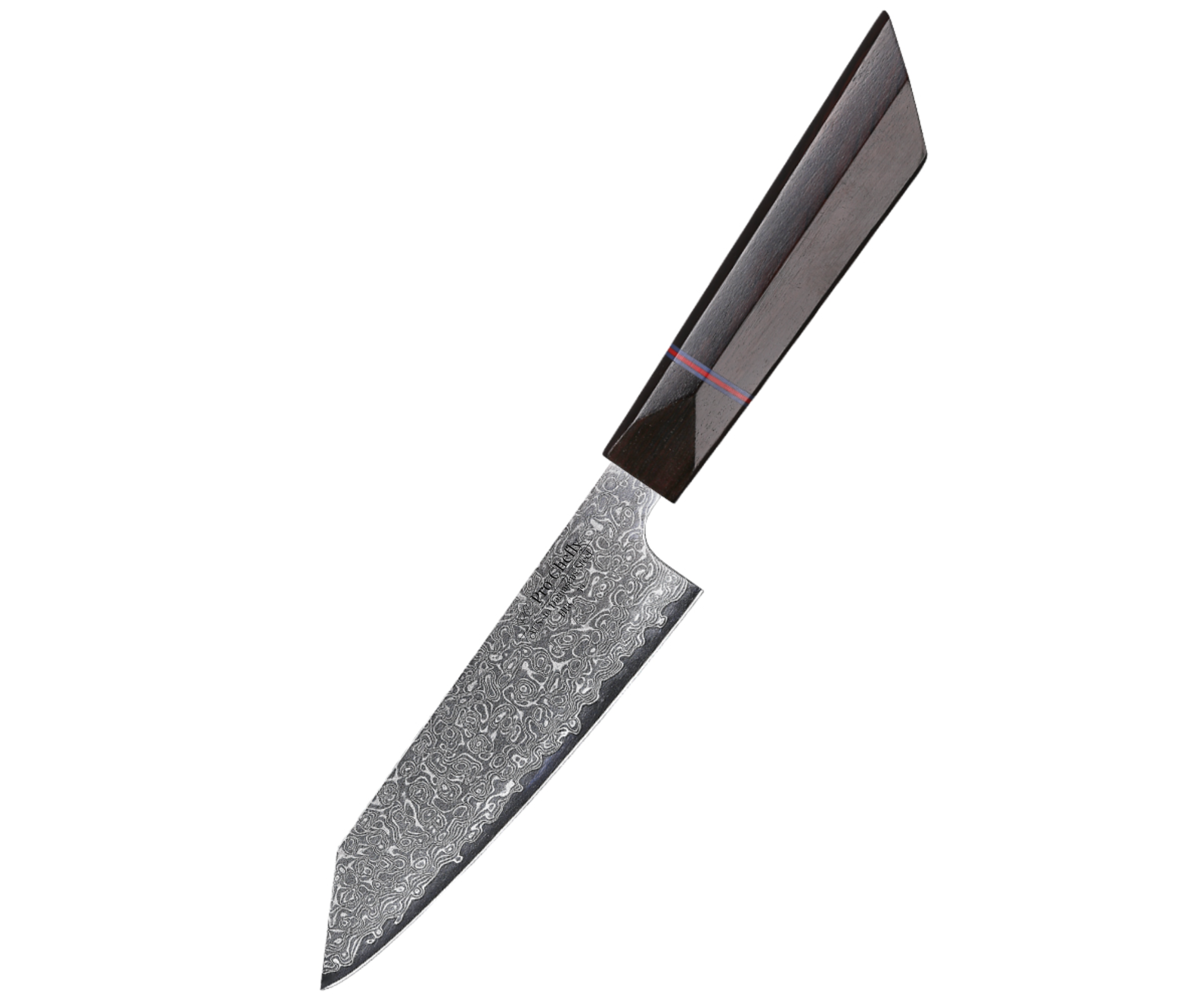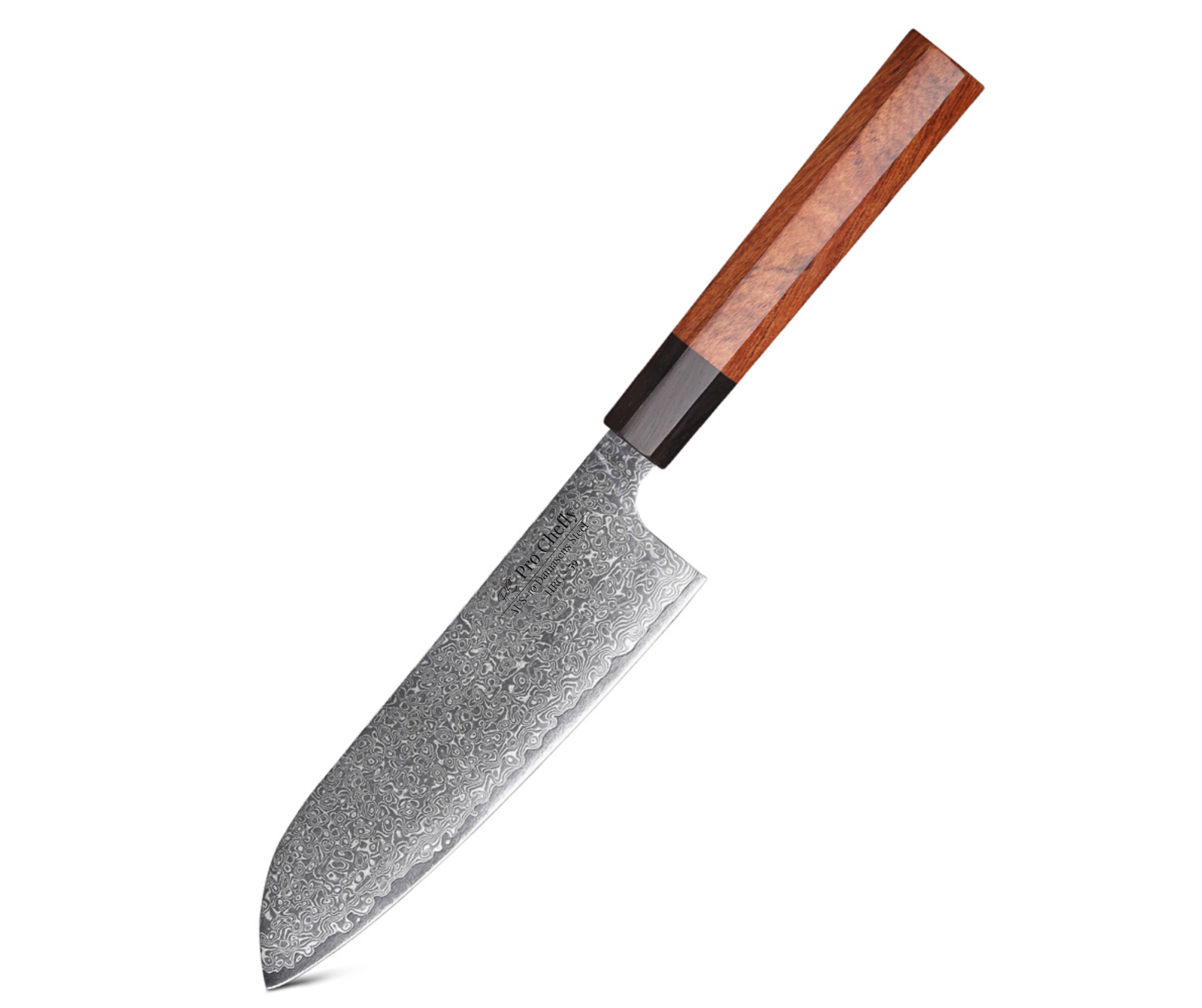Chef’s Overview
Dear Chefs, when it comes to slicing paper-thin herbs, filleting fish with finesse, or dicing onions so fine they almost disappear into the pan, precision is everything. That’s why so many professionals—and home cooks chasing that pro touch—turn to Damascus steel knives. Today, we’ll dig into why these blades deliver unmatched control, consistency, and artistry in the kitchen.

Damascus Steel Knives: Built for Precision and Performance
The patterns may draw you in, but the forging process is what makes Damascus special. By layering hard and soft steels, smiths create blades that stay sharp and resist chipping. As I explained in How to Spot Authentic Damascus Steel vs Fake Patterns, those ripples aren’t decoration—they’re a visible sign of strength. That’s why a 7" VG-10 Damascus Santoku Knife or 8" VG-10 Damascus Chef Knife doesn’t just cut—it glides, giving you confidence in every stroke.
The Forging Process: Why Damascus Cuts Differently
Imagine weaving multiple strands into a rope—each layer strengthens the whole. Damascus steel works the same way. Fold after fold, the blade becomes hard enough to hold an edge yet flexible enough to withstand pressure.
Damascus with VG-10 and AUS-10 Cores
Mass-produced stainless knives may dull quickly or feel clunky in the hand. Damascus forged with VG-10 or AUS-10 cores blends sharpness, durability, and resilience. As I shared in How Does VG-10 Compare to AUS-10 and Other Premium Steels, these steels deliver the edge retention and elasticity that precision cooking demands.
How Damascus Knives Elevate Everyday Cooking
Here’s where the magic happens. Picture chiffonading basil into silky ribbons without bruising the leaves. Or slicing sashimi so cleanly it melts on the tongue. Damascus knives make those cuts effortless. That’s why pros trust them for delicate tasks and why home chefs quickly understand their value. Whether you’re prepping sashimi or tacos, blades like the 5" VG-10 Damascus Petty Knife or the 8.5" VG-10 Damascus Kiritsuke Knife give you unmatched control. If you’re still exploring which knife shape fits your style, check out What’s the Difference Between a Chef Knife and a Santoku Knife.
Why Precision Matters More Than You Think
Cooking isn’t only about ingredients—it’s about technique. Uneven cuts mean uneven cooking, and sloppy knife work changes how flavors blend on the plate. Damascus knives give you the consistency to cook smarter, sharper, and more beautifully every time. Choosing Damascus isn’t about adding another knife—it’s about choosing a partner in your kitchen craft.
Knife Collections
Shop the latest in Pro Chefly Damascus Knives
Chef's Notes
Stay up to date with the latest kitchen stories and recipes

- December 05, 2025
Dear Chefs, the holidays deserve a dish that feels slow, soulful, and unforgettable — and few things capture that spirit...

- November 30, 2025
Dear Chefs, there is something unmistakably comforting about bread pudding in November — the way the custard soaks into the...

- November 25, 2025
Dear Chefs, there is something special about roasted carrots in the fall — the way they caramelize, the way their...

- November 20, 2025
Dear Chefs, there is something magical about fall stuffing, especially when pumpkin and sage join the party. The aroma alone...

- November 15, 2025
Dear Chefs, November has a rhythm of its own — a slower pace, a softer light, and a craving for...

- October 31, 2025
Dear Chefs, fall baking is a ritual — the scent of cinnamon in the air, pecans roasting low and slow,...
- Choosing a selection results in a full page refresh.
- Opens in a new window.
